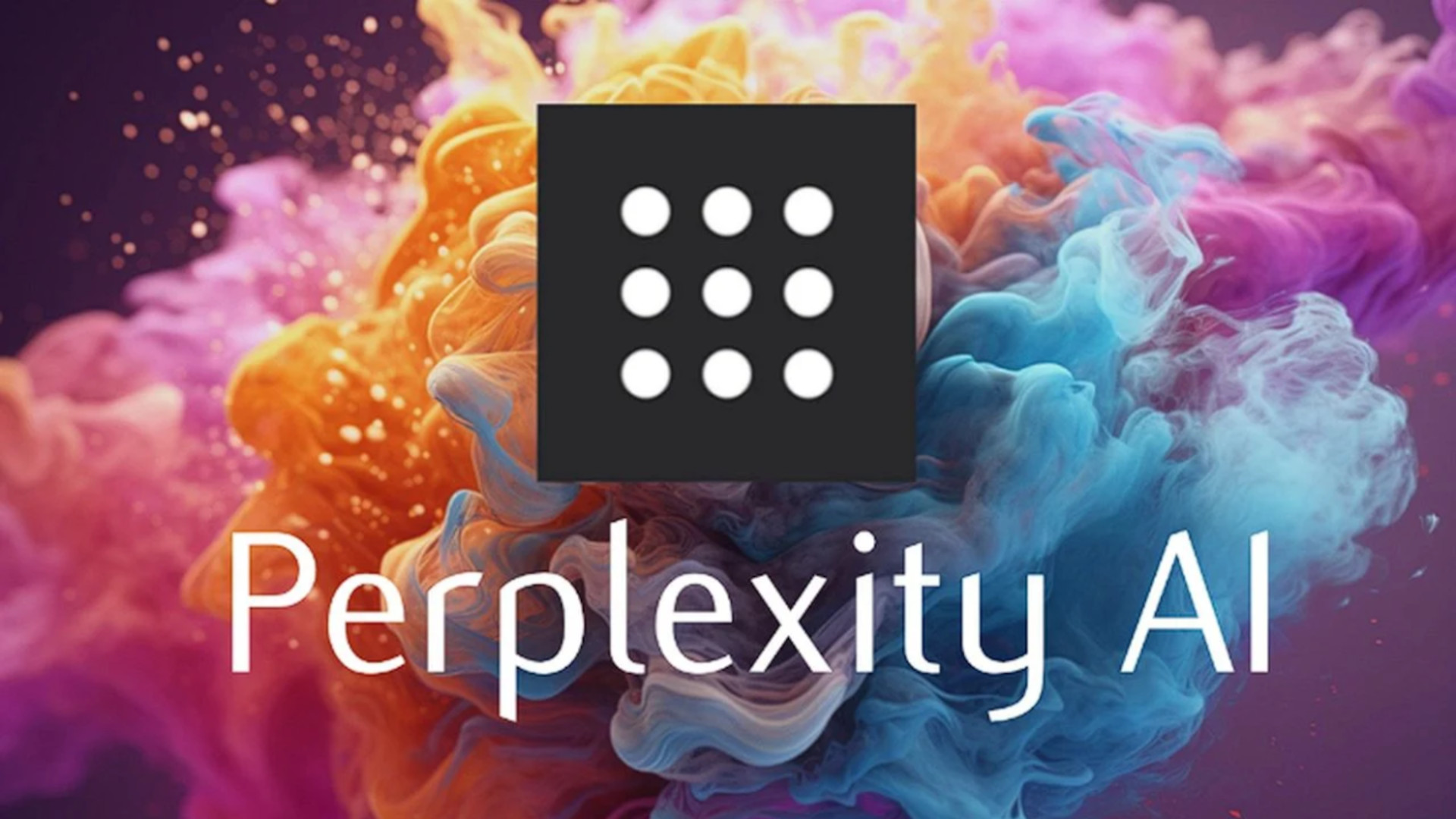
Perplexity AI is a powerful artificially intelligent search engine, effectively. This makes it a potentially useful teaching and learning tool for both educators and students.
The system was created by four AI developers at Google who felt limited and wanted to offer a better solution, which they created here. This uses -- you guessed it -- Open AI's ChatGPT technology to offer natural language processing. All that should mean a smart answer to any question.
The idea was to offer a system that will "democratize access to knowledge," say its creators. All that makes it a useful tool for teachers in which results are quickly accumulated from multiple sources, live, across the web.
This guide aims to explain Perplexity AI so you can see if it will serve you in your classroom.
What is Perplexity AI?
Perplexity AI is a search engine that uses AI to make it conversational, with smart understanding of questions and intelligently adaptive and contextual answers as a result.
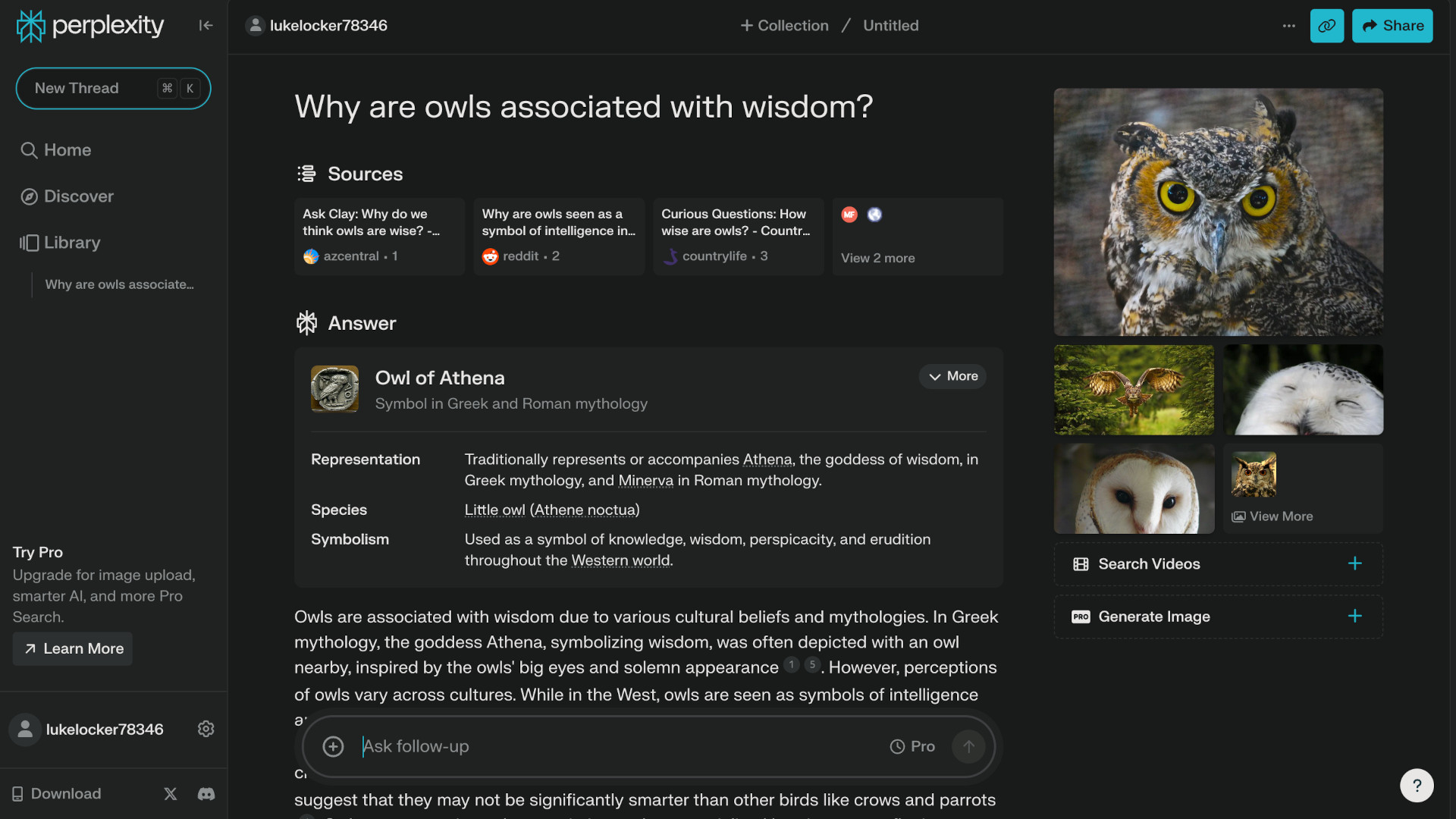
Perplexity uses natural language processing so it is able to understand the question in the context of how it was asked, but also to answer in a conversational way.
The result is an ability to type in a prompt and receive an answer that's more like a Wiki page than a list of results, as a traditional search engine might offer. Usefully, all the sources are linked at the top and in the text itself, so it's possible to get a clear understanding of how the AI got to the answer you're being offered.
Images and videos are also provided in the search results so it's possible to get lots of information and media without the need to visit all the websites. All that should be a big time saver when researching.
How does Perplexity work?
Perplexity uses ChatGPT brains to understand questions, seek out answers, and share content back in a conversational manner.
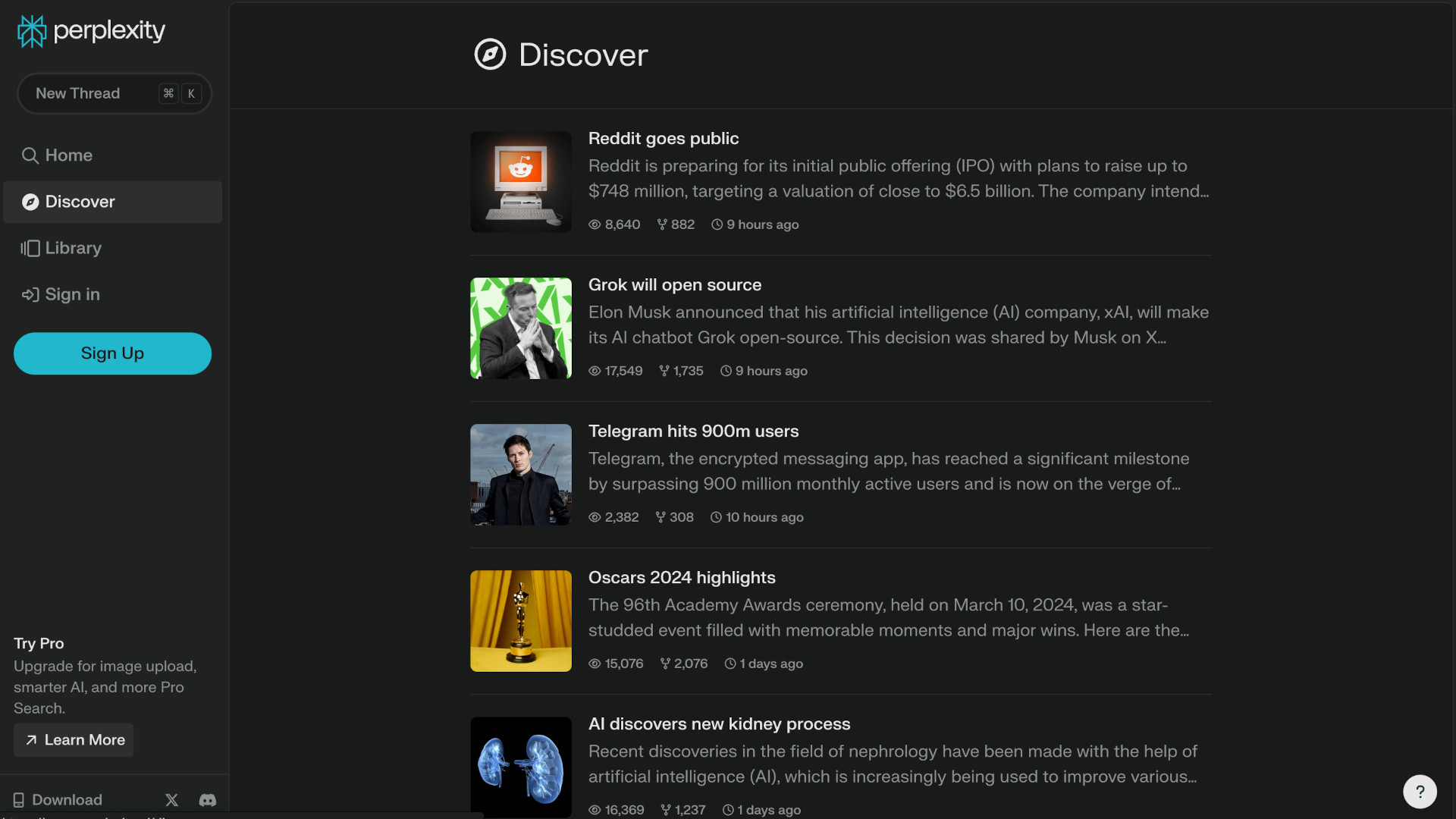
Perplexity offers a simple search bar for you type in your question or prompt, which then moves down as the answer is revealed with images and videos to the side and numbered references in the text that can be selected for linking.
While, at time of publishing, that offers a Wiki-style answers layout, there are future developments that should allow it to generate code, write tables, and solve math problems too.
It's possible to ask a follow-up question, which will give you the answer in the context of what has been offered from the first question. For example if you ask how a rainbow is formed and get an answer about bending light, then you can ask how light bends and that will be offered relevant to the rainbow context.
What are the best Perplexity features?
Perplexity AI is super simple to use and you can sign-up with an email, or use a Google or Apple account.
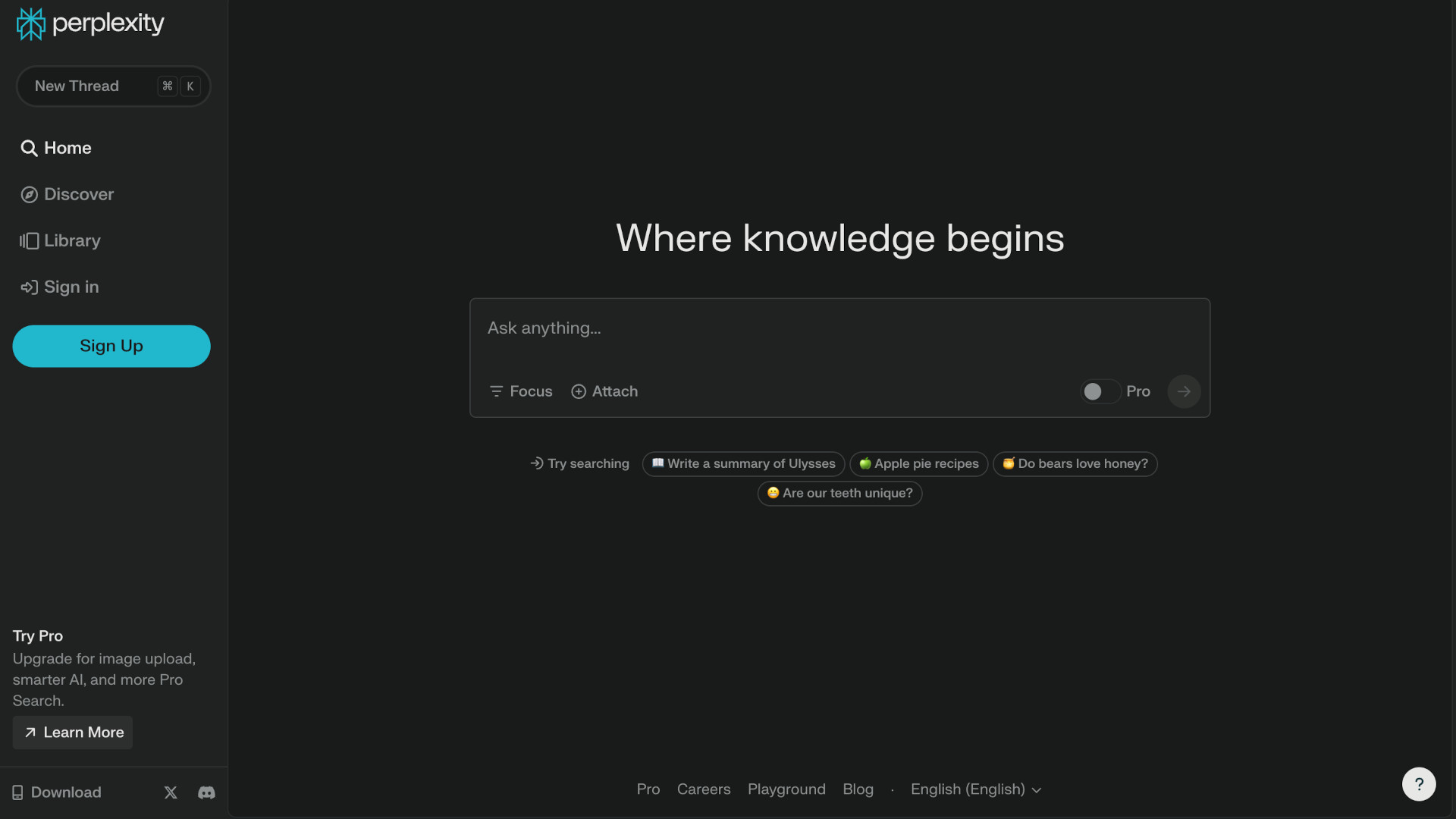
Perplexity offers relevant images and videos that make creating a selection of information a very easy task. Or, if you wish to share the results directly, that's also made straightforward with a copy link icon and share icon in the top right of the page.
This is all also available in app format for iOS and Android, plus you can install it as a Chrome Extension companion or set it to be your default search engine in the Chrome search bar.
The fact all information returned has linked sources makes this a very useful tool as a trustworthy output that is traceable. Useful for teachers doing research but also for students learning how to use an AI search tool with an understanding of how to trust, or distrust, results offered.
A helpful ability is also available to organize results into Collections, to browse through a Discover section, or to pick suggestion searches to find instant results. You also have more powerful tools in the paid-for version but more on that below.
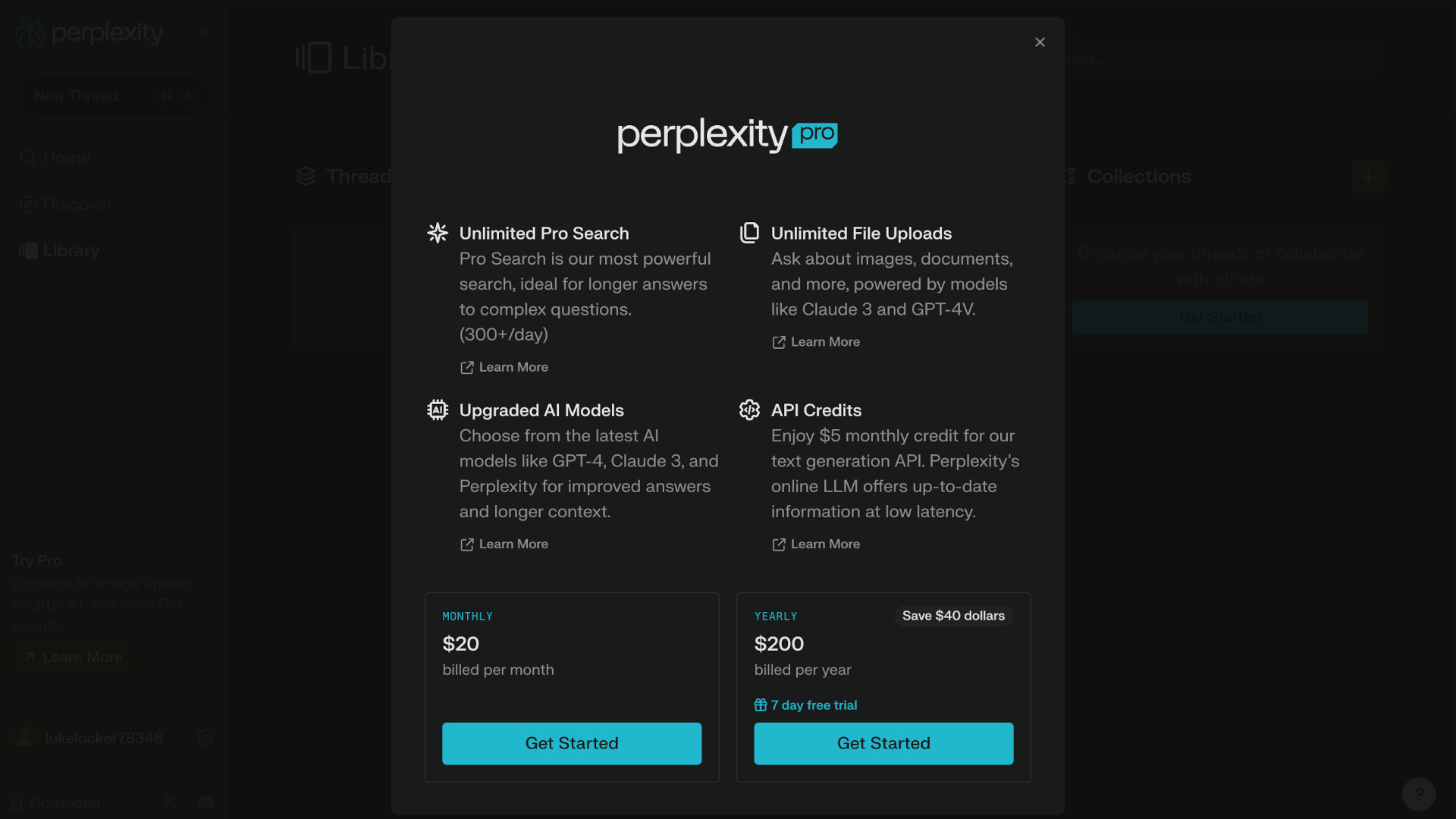
How much does Perplexity cost?
Perplexity offers most of its powerful services for free. Search, follow-up questions, sharing and organizing into Collections are all available using just your email. A paid version is also available.
Go for the Pro version at $20 per month or $200 per year, and you get unlimited searches with longer answers, upgraded AI-models such as GPT-4 rather than GPT-3.5 you get free, unlimited file uploads so you can ask for information on images, documents, and more, plus API credits for a text generation AI.
Perplexity best tips and tricks
Start with the class
Use the tool in class to show students how it works, how to check sources, and why it could help with research projects.
Share Collections
Build research collections and share with the class as a way to get them learning the basics, outside the room, before diving into a topic in class.
AI only answers
Have the class do research using AI only and then analyze how well, or poorly, it has worked compared to traditional research techniques.







